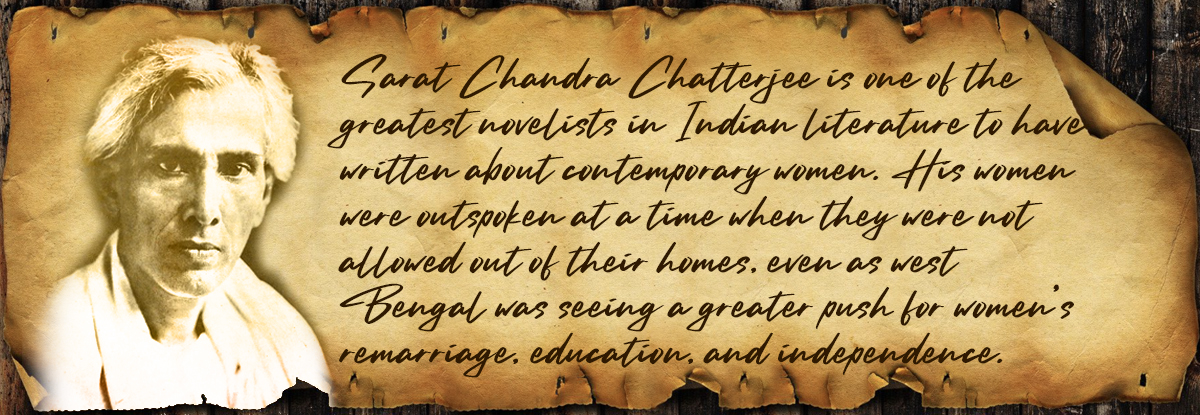SARAT CHANDRA CHATTERJEE
SARAT CHANDRA CHATTERJEE IS ONE OF THE GREATEST NOVELLISTS IN INDIAN LITERATURE TO HAVE WRITTEN ABOUT CONTEMPORARY WOMEN. HIS WOMEN WERE OUTSPOKEN AT A TIME WHEN THEY WERE NOT ALLOWED OUT OF THEIR HOMES, EVEN AS WEST BENGAL WAS SEEING A GREATER PUSH FOR WOMEN’S REMARRIAGE, EDUCATION, AND INDEPENDENCE.
Some of his iconic female characters are Paro in Devdas (1917), Vijaya of Datta (1917-1919), Hemangini of Mejdidi, and Kamala of Shesh Prashna (1929).
Our social fabric is entirely male dominated and we have neglected our women for centuries. Some men have raised their voices in sympathy for their womenfolk but these voices have been rare. The fault lies not with the vision but with shuttered windows that will not let light enter under any circumstances.
If you look out of only one opening till the day you die, you will never see anything new. You will not see any light. ʻWomenʼs libertyʼ, ʻwomenʼs independenceʼ are words on everybodyʼs lips these days, but they stay on the lips and donʼt go any further.
Do you know why? Iʼve found out that liberty can be obtained neither by theoretical arguments, nor by pleading justice and morality, nor by staging a concerted quarrel with men at a meeting. It is something that no one can give to another – not something to be owed or paid as a due. It comes of its own accord, through oneʼs own fulfillment, by the enlargement of oneʼs own soul and vision.
Even today, regardless of the quarrels women may pick in the cause of emancipation, the reality is that, in the present world order, it is the men who eventually grant emancipation. Men look at themselves as unchallenged masters who freed the slaves of the world. The slaves did not earn their freedom by wrangling or arguing.
That is the way things are. It is the law of the world. But women have to raise their voices. They have to fight for equal rights. They have to ensure that men come forward to liberate women. The responsibility for womenʼs emancipation lies equally with men and women.
Excerpt from ʻShesh Prashnaʼ in Bengali by Sarat Chandra Chatterjee

